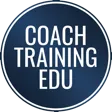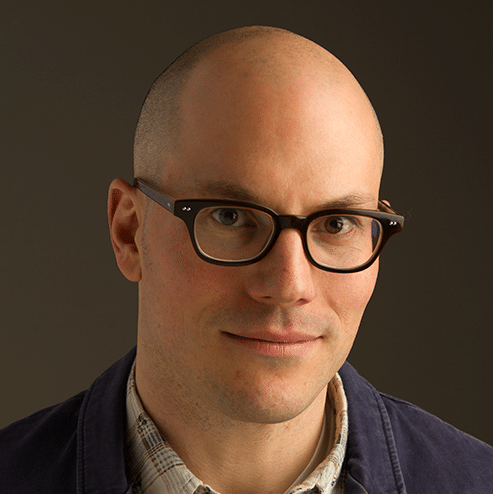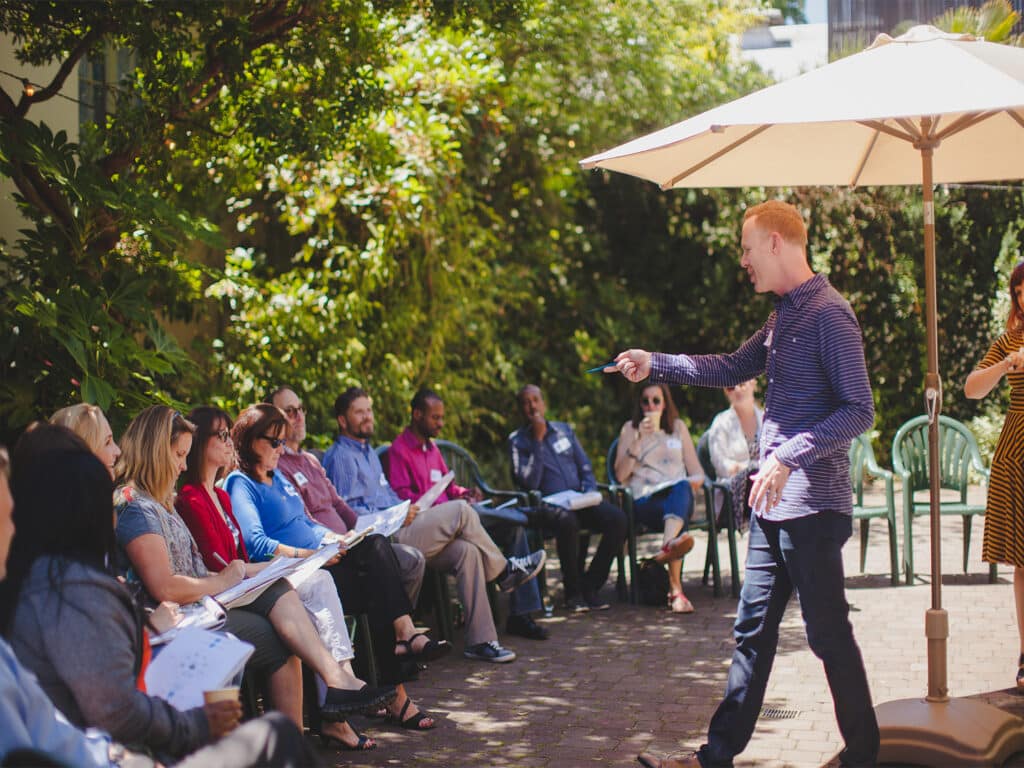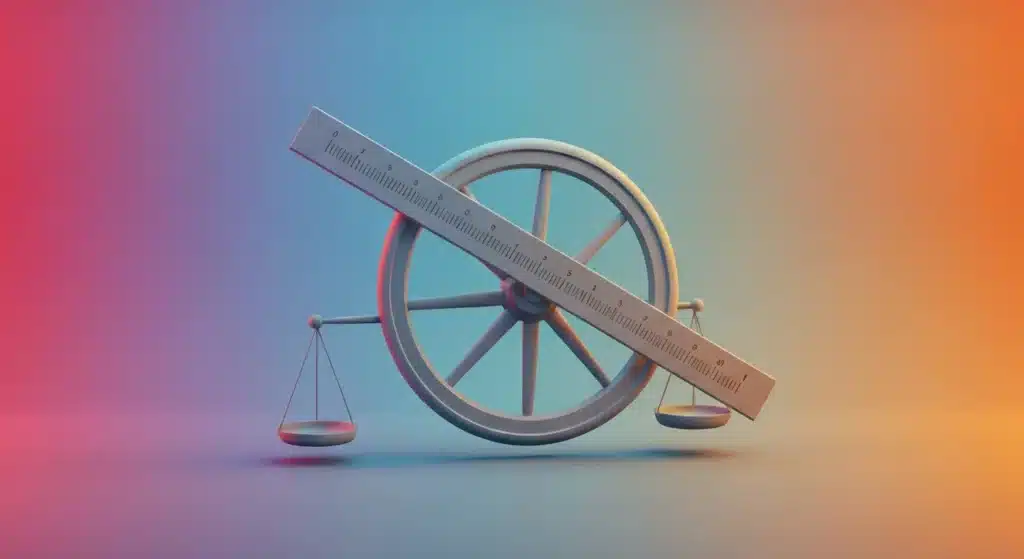Listen to Podcast
Be Curious!
Raj Anderson and guest experts answer your coaching questions each week!
In Coaching to Flourish Season 3 Episode 17, host and Master Coach Raj Anderson, with CTEDU founder and Master Coach John Andrew Williams, discuss important coaching themes of being in congruence, how to help clients identify their obstacles and their strengths, and the important qualities of our internal dialogue.

Live Transcript (unedited)
[Raj Anderson] We’re live! All right. Welcome everyone to the Coaching to Flourish podcast, and I’m your host, Raj Anderson, executive life coach and coach Assessor. And I’m here again, excited with John Andrew Williams, founder of Coach Training EDU. How are you doing, John?
[John Andrew Williams] Good. Good. Thank you, Raj. It’s good to be here. It’s good to see you. You’re looking lovely and color coordinated and –
[Raj Anderson] We are, we matched today? We were just talking about John’s shirt, weren’t we, John?
[John Andrew Williams] Yeah, we were in the – the provide, they call it the providence, like the, the, the way it, it came to you kind of thing. Yeah. You know, when you’re looking at art. Uh, anyway.
[Raj Anderson] So what’s been happening in your world? What’s happening in the coaching world, John?
[John Andrew Williams] What is happening in the coaching world? Uh, I think. Uh, that’s a good question. I’ve been, I’ve, what’s happening in my world is I’ve been, uh, running a personal experiment to see if I can stay away from all infinite scrolls for a period of time. Like no social media, no YouTube, no, uh, no news. Like no, no infinite scroll distraction. Uh, and I know that this is not a sustainable thing. I know that I’m gonna have to get into it, you know, especially getting into social media again and looking at all these other things. But at least for a couple weeks I’ve been doing this.
And, uh, so in the one sense, I feel like I’ve basically put up blinders and I, I’ve, I’m just grinding at the product front of me. And, uh, what I’ve realized, what I’ve experienced now is there’s so much, uh, mental clarity in the sense that I’m, I’m not, I don’t have like, uh, it’s almost like I’m having like surprise – you know, like the, you know, I don’t have a lot of surprises like in, in this space. Like, you know, the surprise level has gone way down. And so it just feels like a lot more quiet, if that makes sense.
Uh, but yeah, that’s what’s going on. So like, what’s going on in the coaching world, I’ve given myself three or four weeks not to know. So that’s what’s happening in my coaching world. Uh, and it’s amazing.
I mean, I feel like, I mean, a lot of people talk about like doing a dopamine cleanse, even checking, you know, I mean, I have to check email, I have to check Slack, I have to check certain things that need to happen. Um, so it’s not like I’m completely out, but then, but there’s a stopping point. You know, there’s not a – oh, let me, like, you know, get into it, and then there’s like 15, 20, 30 minutes later, you know, then you pick your head up and go, whoa, okay. What happened? Yeah, I haven’t done that.
[Raj Anderson] Wow. That’s, that’s phenomenal. Really, I mean, Why do you think people do scroll? You said infinitely scroll. I was curious about that.
[John Andrew Williams] Well, for me, I mean, a lot of people I work with, I mean, a lot of it, it’s, it’s not a bad strategy. I mean, if you look at the, uh, I mean if you look at the neuroscience behind it, there’s, there is a, an urge to distract.
And if you look at our limbic system, you know, the more ancient system of our brain, uh, it goes in the sense of it, it just feels like safety. Like, you can distract yourself away from the stress, or the thing that’s stressing us out. And then that distraction, our brains learn to crave it because we in that moment, lessen the, the painful feelings of sitting with whatever challenge is at hand. So our cortex goes, okay, cool, like limbic brain, you’re happy with this. Like, all right, like, I’m game, like I’ll play along and, you know, give you, you know, uh – like a lot happy, uh, like a, a little bit happy, a lot sad, a little bit sad.
And like all of these algorithms, everything, if you look at what’s happening on social media is so, is aimed at getting you hooked. It’s aimed at getting you, you know, small surprises, both good and bad. So anytime we’re scrolling, that’s what – it’s almost, it’s lighting up that system. So the whole brain becomes oriented towards a, craving distraction. And that comes at a cost, right? It comes at a cost.
And so when something comes up that’s unpleasant to sit with, uh, one strategy that will lessen the discomfort is to get lost in it. Lost in, you know, rabbit holes. And so I’ve been really disciplined about sitting in it, the discomfort of whatever it is, uh, and allowing myself to stare out the window. Like that’s, that’s allowed. Staring – window staring is allowed. And sometimes I’ll do that, you know, for 5, 10, 15 minutes. But when I’m done, I don’t come back tired. I don’t have to come back with more stuff to process. It’s like I’ve come back, like my processor has been cleansed and that’s been lovely. So part of me thinks like, oh my goodness, what if I, what if I keep doing it?
And I talk to a participant, a Coach Training EDU participant, I’ll remember her name in a minute here. Well, I’ll have to ask her first, but, uh, I was, I was talking to her and, uh, she said she’s been doing it for a year and two months. And, and it was like, you know, I, I’m just like, baby, I’m doing it for weeks, and here she is doing it almost for two years.
Mm-hmm. Uh, she said it’s, she’s like, yeah, you, you won’t go back. She’s like, you’re, you’re, you’re hooked onto the the clean, you know, the clean plate kind of thing. Yeah. So, we’ll see. I don’t know, I, I, yeah. I feel like I’m just rambling on this stuff, but this is something I’m really curious about. I know it’s not sustainable.
Part of me is thinking, okay, so how do I do this with like, getting into social. I know that there are tools that can gather like, your, feeds and like you can see like, you know, a very specific feed. So there’s more of a mindfulness approach to, you know, to this. But I mean, I, so that’s what, that’s the space I’m playing with right now.
[Raj Anderson] Yeah, that makes sense. I mean, I do turn off my emails, uh, at the weekend. So I just go into the settings on my phone and I don’t have a lot, I don’t, I’m not on Instagram or Facebook or anything like that either. So. Yeah, it’s interesting what you learn about yourself. Um, um, I think this connects quite nicely to one of the questions I have for you, John. Um. Yeah, let’s shift gears. So this is coming from a coach. How can I help my clients realize their self-induced obstacles?
[John Andrew Williams] How can you help clients realize that they have self-induced obstacles?
Uh, alright, I’ll, I’ll play. Uh, the thing. The first, uh, first place to go, uh, is really go empathetic, you know, curious, listening. Like always, right? You go empathetic, curious on it. And, uh, as a coach yourself to remove the good/bad judgment that you, you, yourself, are putting on the obstacle. Doesn’t mean that the obstacle is good or useful, or doesn’t need to be – you know, it, you know, it’s, it’s better that it’s there. Uh, but just temporarily, like even just two or three minutes as a coach to mindfully say, okay, I’m not gonna judge this.
And then get curious about it. Like, so why is the obstacle here? What’s the usefulness of the obstacle? What, uh – I’m being distracted. They’re distract – I’m on with the Facebook Live. You hear them? There are giggles.
Yeah, yeah, yeah. The distraction. What’s the usefulness of the distraction, right? So you get into it and you get, so, you get curious about it. And then once you, once that curiosity happens, uh, what I’ve found is that usually people are participants, are, are – doing, you know, clients, they’re putting the obstacles there for a reason.
And as a coach, you don’t want to take the obstacle away without first like grabbing the opportunity to explore. Why is that obstacle here? Like even if you go back to the infinite, infinite scroll, you know .So for a period of time, like all these things where you look at students and you look at the like, psychology of success, and you know, how people guard against, you know, that inner, that harsh inner critic. Because like, let’s say that, you know, they have a, a test coming up.
And, uh, they will, you know, students often, they won’t like, pour absolutely a hundred percent of everything they could possibly do, because, you know, it’s A, it’s hard. B, uh, it’s really useful to have an excuse to say, oh, why you didn’t do well, and say, oh, in the future I will do this differently and if I did this, then I’ll get that grade.
So it’s almost like we create these self obstacles to be lovely excuses to keep ourselves safe. Anytime you’re coaching in this realm, you are playing with inner narratives. You’re playing with ideas of worth, ideas of, you know, this is the narrative, this is the story. These are the truths I held. You know, these are the truths that I hold to be, you know, correct about me.
This is sacred ground. It’s still when you’re, and you’re in this space and you’re approaching it with curiosity and the reverence that it requires – uh, not necessarily requires, like, the reverence that it’s inviting you to have – then, uh, your questions, uh, you, you’re gonna change, you’re gonna change this client’s life. You are going to change their life if you approach this from that perspective. And stay open and then curious.
And then, you know, after the, you know, 10, 20, 30 minutes, you know, you can go back to your judgment brain and say, absolutely not. This obstacle is here. You’re putting this obstacle here in your, in your way. Why? That’s like, you know, last, last step if none of that works, or you know, none of that breaks through or makes sense. You just gotta say directly what you think, ask why, or you know, what do you wanna do with it? And then go, you know, go from there.
Uh, but always addressing it directly. If you can’t shake it as a coach, is there really a useful thing. But you also make sure you just hold that container of curiosity. And once you say it, release the outcome to what, which direction your client wants to go in.
[Raj Anderson] Because often they might not realize the stories that they’re telling themselves or the beliefs that they hold. Um, or maybe there is a story or belief that they would like to hold, yet there is incongruence or inaction, so there’s misalignment. So how do you pull that out or hold the mirror out to incongruence John?
[John Andrew Williams] That’s a great question. Um, I’ve listened to a lot of coaching, you know, as, as you have Raj, we’ve talked about this, how it feels like when there’s an incongruent client, it, it had – by incongruent, like, you know, they’ll say something, but what they’re saying doesn’t, it feels like it’s a mismatch for what’s true in their life, or like the energy with which they’re saying it. So just like, let’s define incongruence.
And then if we go from there, uh, incongruent clients, uh, they have a tendency to invite the coach to also be incongruent, by asking questions about the stuff that just feels like air, or feels like, you know, it’s, it’s like coaching that doesn’t make sense. You know, the whole thing just feels like a cloudy, muddy mess, you know? Like what? You know, what I’m talking to you about.
And then I’ve also heard it the other way, where there’s an incongruent client, but the coach is congruent. And the coach is able to cut through the incongruence, almost use the incongruence for the next coaching question, and then one of two things happen. The client either digs in more in the incongruence and says, you know, starts defending and feeling like, oh no, this is the way it is.
But in that defense, there’s often, you know, if the coach is congruent, the clients will also push themselves towards congruence. They usually clarify, they figure out, oh no, this is really it and this is why you, it, it changes the landscape if the coaches can, you know, if the coach can stay in a space of groundedness, clarity, confidence in the process, they can move clients to congruence.
And then I’ve heard a congruent client and an incongruent coach. Those are fascinating. That is, that is, those sessions are unbelievable to me. And this is where I feel like a congruent client can make a coach really, really good. Uh, if, if clients have a deep inner awareness and know how to use a coaching – know how to use a coaching session because they’ve been coached before. How to take advantage of it, even if the question doesn’t land perfectly, to take, you know, take the some part of the question and run with it. Uh, I’ve heard those sessions too.
I feel like I wanna go back and get examples of these, like, you know what I mean? Like, here’s the clip and this is how, you know, like, oh my goodness. Uh, but I’ve heard those. And then when both a coach and client are congruent, it’s amazing. Like, it just feels like the coaching can get really powerful very quickly. And it’s a joy to hear. It really is. It’s like, I feel like, uh, yeah, it’s really moving people on the edge of, of their awareness, human awareness.
[Raj Anderson] Thank you, John. So I’ve got another question for you, and this is from not a coach, but from an individual. Can coaching help me identify skill gaps that are preventing me from achieving my goals?
[John Andrew Williams] Yes. Yeah. What do you think, Raj?
[Raj Anderson] Yeah, absolutely. And I would add to that, furthermore, it would help you to identify kind of gaps in mindset, behaviors, habits, belief systems. We were just talking about it right now, aren’t we? And to add to that as well, I think for me, coaching has been phenomenal in actually recognizing what my skills and strengths are and how to utilize them.
[John Andrew Williams] Yeah. I think, uh, you know, when you look at using coaching, uh, to really figure out like, who am I and what am I at my most compelling self? Uh, these are really, these are, these are amazing questions. And I, I think, I mean, I’ve often played with the idea of putting together or attending a leadership program or, or, you know, going more in and asking these questions.
Like, you know, because it’s always about, uh, gathering, you know, useful feedback, you know, and putting yourself out there. Rinse and repeat. I, I am convinced that there is – I mean, there is, it’s not even that, like- it’s fulfilling to be connected to a movement of more awareness and kindness and empathy and active listening. And, and knowing like there is data, like we know, uh, you know, if you’re wanting to be a good coach, like these are the skill sets that you need and we can measure that. That’s amazing.
And the same thing, you know, when people are, are doing any skillset in their life or, you know, they’re trying to accomplish something, there’s probably data sets or skillsets or roadmaps available that, you know, that you can gather and then say, okay, how, how do I interact with this? How can I, you know, what do I like about this? And then gather feedback on like, when you, like, when other people find you most compelling.
I mean, we’re living in a world now where the resource, the resources are so rich. Uh, it’s like you just gotta just press the search button and then search. And like, almost like a feedback button. Like press the search button, press the feedback button. And what I mean by that is trying to figure out what, like what is the mechanism in your life that you’re gathering feedback?
Oftentimes, and when you look, you know, when you look at things as, as feedback, oftentimes it changes the perspective on everything. So like, what if instead of, uh, looking at you know, your financial numbers as a measure of worth, what if financial numbers became feedback? And how would you want your financial, like, feedback on what? Like, how would you want to approach your financial numbers?
Or if you’re working with students, uh, grades. How can you use grades as feedback, non-judgment? I mean, we spent a whole, one of 24 chapters on, you know, in the academic life coaching program just on that. Because we’ve all, all of us who’ve gone through additional school have been so, um, conditioned to look at external feedback as a measurement of worth, and then to compare that with everyone else.
It’s human, it’s limbic system all the way, and then the cortex has a party too with it. But if you can mindfully start unpacking this stuff and then asking, okay, how do I want to reorganize my inner world to most effectively work with this outer feedback? Ah, that’s, that’s what coaching allows you to do. That, that’s the, you know, that’s one reason why, uh, coaching is so powerful and successful in what it does.
[Raj Anderson] Any coach can help you to even reflect and give yourself feedback in the moment, can’t they? Through a learning question, for example.
[John Andrew Williams] Yeah, it’s amazing. I mean, I feel like it just helps that inner world so much.
It’s our processing speed, our processor. I feel like human processors are maxed out right now. Like the clients I work with, people I listen to. Everyone’s maxed. It’s wild. What coaching does is it helps you like, process what you need to process so you can make better decisions.
[Raj Anderson] So how, how can we seek feedback from ourselves on a day-to-day?
[John Andrew Williams] Uh, I think, yeah. I mean diagno- like looking at the different kinds of feedback too. Maybe just get into it just a little bit.
You’re looking at, uh, externally referenced feedback versus internally referenced feedback. So externally referenced feedback is things that measurements outside of, like, measurements that are based on the results of your actions. We’ll call that external reference. Internal reference are, uh, feelings, um, emotion, thoughts, that, that you gather like internally.
And, like what this might look like in a day. So like an externally referenced day, and feedback, might look at, um, you know, activities. Like for instance, like, did you go, did you exercise today? Did you drink water? Did you do the revenue generating activities? Did you do the, you know, your key performance activities? Did you do mindfulness, self-care activities? Like it’s all based on, you know, did you do the action and then what was the, what was the results like? How many X leads did you get? You know what I mean? Like, just all external stuff, which is useful.
Internal feedback looks more like, did you push yourself as hard as you could today? How many hours were you on point? You know how, like what – uh, that internal world, like what, what was your, how well were you able to hang on to the perspective, like your, your most empowered perspective? How many times did you tap mindfully tap into gratitude? You know, so it’s all that, like, how much effort did you put into this today? It becomes an internally referenced feedback.
And it’s really helpful to have both, and to be able to know like which kind of feedback you’re leaning into, which kind of feedback you want to use to like, determine like, how good your day went. Because there are days that are super hard, but I know I am pushing as hard as I possibly can.
And I know with confidence that since I’ve turned off infinite scroll in my life, I have pushed, I am pushing as hard as I possibly can. So if I fail, I have, I know that I have tried my very best. And I still have failed. That’s a tough narrative to swallow. That is not, that that is playing with fire. But what I find is that even if it fails, and even if it’s hard, even if it’s there, there’s always, like there’s always another like step that just seems like, okay, this is the next one. This is the next one to do. Like even in this space.
So scary, yes. Does it take a ton of discipline, yeah. But do I do it because I believe in the larger purpose and mission of everything that we’re doing here? Absolutely. And when, you know, we get negative external feedback, can you use that to fuel yourself to live even more excellently? And that’s the question.
I feel like that’s, that’s the question. Like, you know, like you’re, you’re locked in, you know, you’re in it. You know, are you willing to go all in to make this thing happen for the sake of not just you, but for the sake of your larger community? That’s, that’s what I’m playing with. And the people I see do that, it’s really fun. It’s a really lovely, fun place to live life from.
[Raj Anderson] Thank you John. And in this, I mean, Ashley and I were talking about some of this last week. We were talking about managing your energy versus time, that internal feedback as well. So if anyone’s interested, listen to that from last week. It’s kind of, uh, John never knows, but we always circle around and it kind of connects and we build off of these things, don’t we John?
[John Andrew Williams] Raj it’s amazing. You create an amazing, lovely space for these questions, to let me just riff and do my thing and process.
Like some of the stuff that I’ve been really with, you know, processing. One, just to put a, like a very specific bow on this and like where, where, where I see this going and like what I’ve been playing with too, is this idea that the quality of the questions that we ask ourselves internally determine the quality of our life.
Meaning that a lot of times people ask questions like, what’s wrong with me? Or Why can’t I do this? Or Why is it not working? Those are low quality questions that force your mind to come up with answers that don’t really need to be – uh, you know, it’s sometimes useful to look at that, but only like, sometimes. You know, the other questions that are more useful are like, what am I learning right now about myself? Uh, how can I gather more useful feedback? What is the, like, what am I grateful for? Like, those kind of questions lead to a different kind of answer, different kind of quality of life.
So that’s what I’ve been playing with a lot lately is, okay, so what are the questions we’re asking ourselves and how do we do this? Uh, I think there’s a lot behind that. And if I were to put a book together, I think that would be the topic of the next book.
[Raj Anderson] Beautiful. And I would buy that book.
[John Andrew Williams] Thank you. Hopefully I would too. Hopefully. I mean, if I, if I could do it. I don’t know. I don’t know if I have that in me, with everything going on, but it’s something I care a lot about is, is this internal question quality. And um, I’m trying to think about -yeah, so, I felt like that’s good and spot. Thank you Raj, your questions are lovely. The energy you create is amazing and I really appreciate the space and opportunity.
[Raj Anderson] Thank you, John. Thank you. I’m gonna take those words with me, the quality of the questions you ask yourself determine the quality of your life. And we will look out for John’s book. And if you have any questions, please send them to us.
[John Andrew Williams] I have one for the community too. Like, I’m, I’ve been playing lately with how could you measure internal question quality? Like, you know what I mean? Like, is it, you know, and there’s no right or wrong – I don’t know if there’s a right or wrong answer with this, but I would be really curious. So let’s leave that as the open question to the community.
[Raj Anderson] Thank you, John. Thank you everyone for listening. We’ll see you soon. Bye.
Join us each Tuesday Live on Facebook at 11:30 AM PST | 2:30 PM EST.
The Coaching to Flourish podcast is currently available on Spotify, Apple, Amazon, Overcast, Pocket Casts, Radio Public and Anchor.




